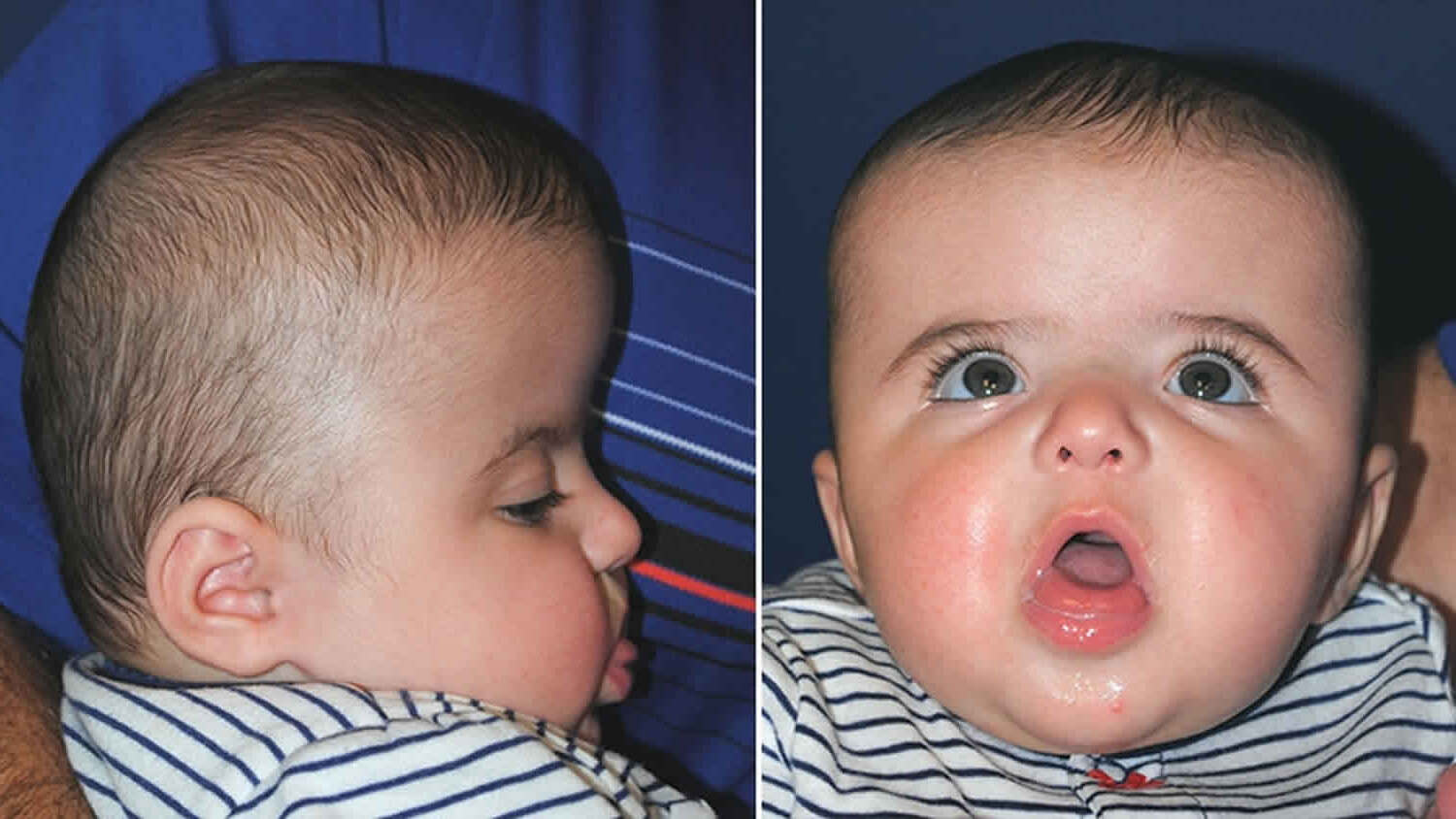
What is Muenke Syndrome? Muenke Syndrome, also known as FGFR3-related craniosynostosis, is a genetic disorder that causes the premature fusion of certain skull bones. This early closure can lead to an abnormal head shape and various developmental issues. Affecting roughly 1 in 10,000 to 1 in 30,000 people, it is the most common form of syndromic craniosynostosis. The condition arises from a specific mutation in the FGFR3 gene and follows an autosomal dominant inheritance pattern. Symptoms can vary widely, including hearing loss, developmental delays, and distinctive facial features. Early diagnosis and multidisciplinary care are crucial for managing this complex condition effectively.
Key Takeaways:
- Muenke Syndrome is a rare genetic disorder affecting skull development, with symptoms like craniosynostosis and distinctive facial features. Early diagnosis and genetic testing are crucial for effective management.
- Individuals with Muenke Syndrome may experience a range of medical and developmental challenges, requiring long-term monitoring and support. Genetic counseling and support groups play a vital role in helping affected families.
What is Muenke Syndrome?
Muenke syndrome, also known as FGFR3-related craniosynostosis, is a genetic disorder that affects the development of the skull and other parts of the body. Let's explore some key facts about this condition.
-
Definition and Prevalence: Muenke syndrome is an autosomal dominant disorder caused by a mutation in the FGFR3 gene. It affects about 1 in 10,000 to 1 in 30,000 individuals.
-
Genetic Cause: The syndrome results from a specific mutation, p.Pro250Arg, in the FGFR3 gene, leading to premature closure of cranial sutures.
-
Inheritance Pattern: It follows an autosomal dominant inheritance pattern. Only one copy of the mutated gene is needed for the condition to manifest.
-
Reduced Penetrance: Up to 20% of carriers may not show symptoms, a phenomenon known as reduced penetrance.
Symptoms of Muenke Syndrome
The symptoms of Muenke syndrome can vary widely among individuals. Here are some common symptoms associated with the condition.
-
Craniosynostosis: Premature closure of one or more cranial sutures, leading to abnormal skull shapes. Coronal synostosis is the most common type, occurring in about 85% of patients.
-
Hearing Loss: Sensorineural hearing loss affects approximately 70% of patients. Recurrent ear infections can worsen hearing loss if not treated.
-
Developmental Delay: About 60% of patients experience developmental delays, often manifesting as speech delay.
-
Strabismus: Crossed eyes or strabismus are present in about 45% of patients.
-
Carpal and Tarsal Anomalies: Abnormalities in the bones of the hands and feet are common, affecting about 50% of patients.
-
Brachydactyly: Short fingers and toes are observed in many patients.
-
Seizures: Seizures can occur, though they are rare and not directly related to increased intracranial pressure (ICP).
Distinctive Facial Features
Individuals with Muenke syndrome often have distinctive facial features that can help in diagnosis.
-
Down-slanting Eyes: The eyes are often positioned downward, giving a distinctive appearance.
-
Hypertelorism: The eyes are spaced widely apart.
-
Frontal Bossing: The forehead is more rounded than usual.
-
Cleft Lip or Palate: An opening in the lip or roof of the mouth is a common feature.
-
Midface Hypoplasia: The middle part of the face is flattened.
-
Retrognathia: The jaw is smaller than usual.
Head Shape Abnormalities
The shape of the head in individuals with Muenke syndrome can vary significantly.
-
Bicoronal Synostosis: Leads to brachycephaly with a recessed forehead.
-
Unicoronal Synostosis: Results in a head shape more consistent with a single-suture phenotype.
Medical Comorbidities
Muenke syndrome is often associated with various medical comorbidities.
-
Recurrent Ear Infections: These infections can lead to hearing loss if not treated effectively.
-
Myringotomy Tube Placement: The most common extracranial surgical procedure performed on patients with Muenke syndrome.
-
Seizures: While rare, seizures can occur and are managed as non-focal epilepsy.
Surgical Management
Surgical intervention is often necessary to manage craniosynostosis and associated complications.
- Fronto-orbital Advancement: The most common surgical procedure, required by about 76% of patients.
Genetic Testing
Genetic testing is crucial for diagnosing Muenke syndrome.
-
DNA Sequencing: Identifies the pathogenic variant p.Pro250Arg in the FGFR3 gene.
-
De Novo Mutations: Confirmed in about 33% of families where both parents are genetically tested.
Family History
Understanding family history is important in diagnosing and managing Muenke syndrome.
- Inherited Cases: About 64.7% of cases are inherited, with a higher prevalence among mothers (71%) compared to fathers (13%).
Long-term Management
Long-term management involves monitoring and addressing various aspects of the condition.
-
Raised ICP Monitoring: Regular checks for increased intracranial pressure.
-
Developmental Progress: Monitoring developmental milestones and progress.
-
Speech and Language Development: Early intervention for speech and language delays.
-
Audiological Surveillance: Regular hearing tests to detect impairments early.
Neuropsychiatric Comorbidities
Some individuals with Muenke syndrome may experience neuropsychiatric comorbidities.
-
Autism Spectrum Disorder (ASD): Observed in some patients, requiring specialized management.
-
Attention Deficit Hyperactivity Disorder (ADHD): Also observed in some patients.
Behavioral Issues
Behavioral issues are common and require early intervention.
-
Hyperactivity: Common in individuals with Muenke syndrome.
-
Developmental Delays: Early intervention and behavioral therapy can help.
Vision Problems
Regular ophthalmological surveillance is necessary to address vision problems.
-
Strabismus: Crossed eyes are frequent.
-
Nystagmus: Repetitive, uncontrolled eye movements.
Sleep Apnea
Obstructive sleep apnea can occur due to midface hypoplasia.
- Interrupted Breathing: Requires proper management to ensure adequate sleep quality.
Cognitive Development
Cognitive development can be affected, leading to intellectual disability.
- Intellectual Disability: Observed in about 40% of patients.
Physical Development
Physical development may be delayed, with certain abnormalities.
-
Brachydactyly: Short fingers and toes.
-
Carpal and Tarsal Anomalies: Common but typically not causing significant medical problems.
Early Diagnosis
Early diagnosis is crucial for effective management.
- Newborn Diagnosis: Craniosynostosis is typically diagnosed in newborns.
Genetic Counseling
Genetic counseling is essential for families affected by Muenke syndrome.
- Understanding Inheritance: Helps in understanding the inheritance pattern and risk of recurrence.
Support Groups
Support groups provide emotional support and valuable resources.
- Connecting Families: Helps families with similar experiences connect and share advice.
Research and Development
Ongoing research aims to improve understanding and treatment of Muenke syndrome.
- Genetic Mechanisms: Research focuses on understanding the genetic mechanisms underlying the condition.
Clinical Trials
Participating in clinical trials can provide access to new treatments and therapies.
- Advancing Understanding: Clinical trials are crucial for developing more effective management strategies.
Understanding Muenke Syndrome
Muenke syndrome, a genetic disorder caused by a mutation in the FGFR3 gene, affects skull development and leads to various physical and developmental challenges. With symptoms like craniosynostosis, hearing loss, and developmental delays, early diagnosis and intervention are crucial. Genetic testing confirms the condition, while multidisciplinary care, including surgical procedures, speech therapy, and audiological surveillance, helps manage symptoms. Families benefit from genetic counseling and support groups, which provide valuable resources and emotional support. Ongoing research and clinical trials aim to improve treatment options and outcomes. Understanding the wide phenotypic variability and long-term implications of Muenke syndrome helps families navigate the challenges and improve the quality of life for affected individuals. By staying informed and seeking comprehensive care, families can better manage this complex condition.
Frequently Asked Questions
Was this page helpful?
Our commitment to delivering trustworthy and engaging content is at the heart of what we do. Each fact on our site is contributed by real users like you, bringing a wealth of diverse insights and information. To ensure the highest standards of accuracy and reliability, our dedicated editors meticulously review each submission. This process guarantees that the facts we share are not only fascinating but also credible. Trust in our commitment to quality and authenticity as you explore and learn with us.


